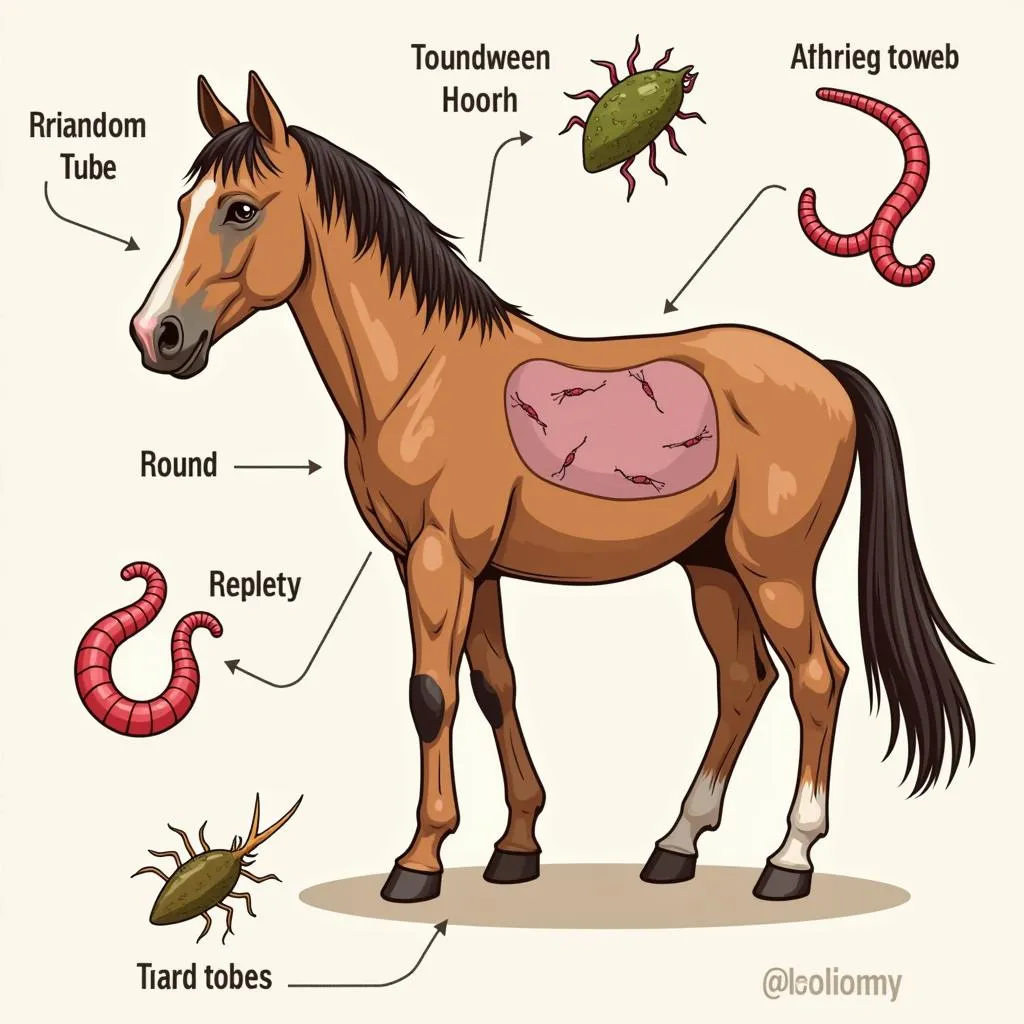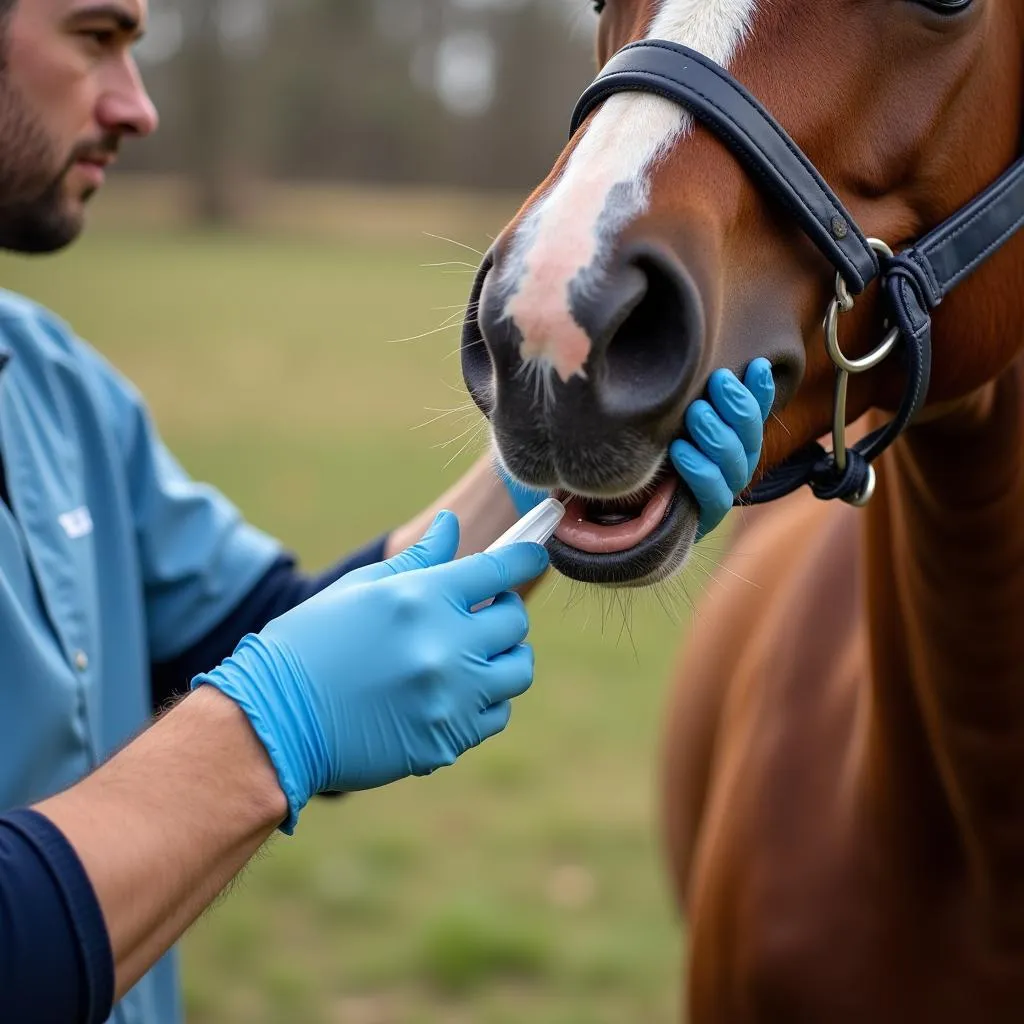Anthelmintic horse wormer is an essential aspect of equine care, ensuring the health and well-being of your beloved companion. Choosing the right wormer and understanding how it works can be confusing with various options available. This comprehensive guide delves into the world of anthelmintic horse wormers, providing you with the knowledge to make informed decisions for your horse’s health.
 Horse Internal Parasites
Horse Internal Parasites
Why Anthelmintic Horse Wormer is Crucial
Horses are susceptible to a variety of internal parasites, commonly known as worms. These parasites can wreak havoc on your horse’s digestive system, leading to a host of health problems, including:
- Weight loss: Parasites consume essential nutrients meant for your horse.
- Colic: Intestinal blockages caused by worms are a common cause of colic.
- Poor coat condition: A dull, rough coat can indicate a heavy parasite load.
- Lethargy: Horses with internal parasites may appear tired and lack energy.
 Veterinarian Administering Wormer
Veterinarian Administering Wormer
Types of Anthelmintic Horse Wormers
Anthelmintic horse wormers work by targeting different types of parasites. Choosing the right wormer depends on the specific parasites your horse is susceptible to.
- Ivermectin: Effective against a broad spectrum of parasites, including roundworms, bots, and lungworms.
- Praziquantel: Targets tapeworms specifically.
- Fenbendazole: Another broad-spectrum wormer, effective against roundworms, strongyles, and pinworms.
- Moxidectin: Highly effective against encysted small strongyles, a particularly harmful type of parasite.
Developing a Strategic Wormer Program
A one-size-fits-all approach doesn’t work for worming horses. A strategic worming program tailored to your horse’s needs is essential.
- Fecal Egg Counts: Consult your veterinarian to conduct fecal egg counts regularly. This helps determine the type and load of parasites present in your horse.
- Targeted Deworming: Based on fecal egg count results, your veterinarian can recommend specific dewormers to target the parasites affecting your horse.
- Seasonal Considerations: Some parasites are more prevalent during certain times of the year. Adjust your worming schedule accordingly.
 Horse Grazing in Pasture
Horse Grazing in Pasture
Administering Anthelmintic Horse Wormer Safely
Proper administration of wormer is crucial for its effectiveness and your horse’s safety.
- Follow Instructions: Always follow the dosage instructions provided on the wormer packaging or as directed by your veterinarian.
- Use the Correct Syringe: Use the syringe provided with the wormer to ensure accurate dosing.
- Administer Orally: Most wormers are administered orally. Ensure the wormer is deposited on the back of the horse’s tongue to prevent spitting.
Expert Insights
“A common misconception is that all horses need to be wormed every few months,” says Dr. Emily Carter, DVM. “This can lead to parasite resistance. Strategic worming based on fecal egg counts is far more effective and helps preserve the efficacy of dewormers.”
Conclusion
Anthelmintic horse wormer is an essential tool for maintaining your horse’s health and well-being. By understanding the different types of wormers, developing a strategic worming program, and administering wormer safely, you can effectively protect your equine companion from the harmful effects of internal parasites.